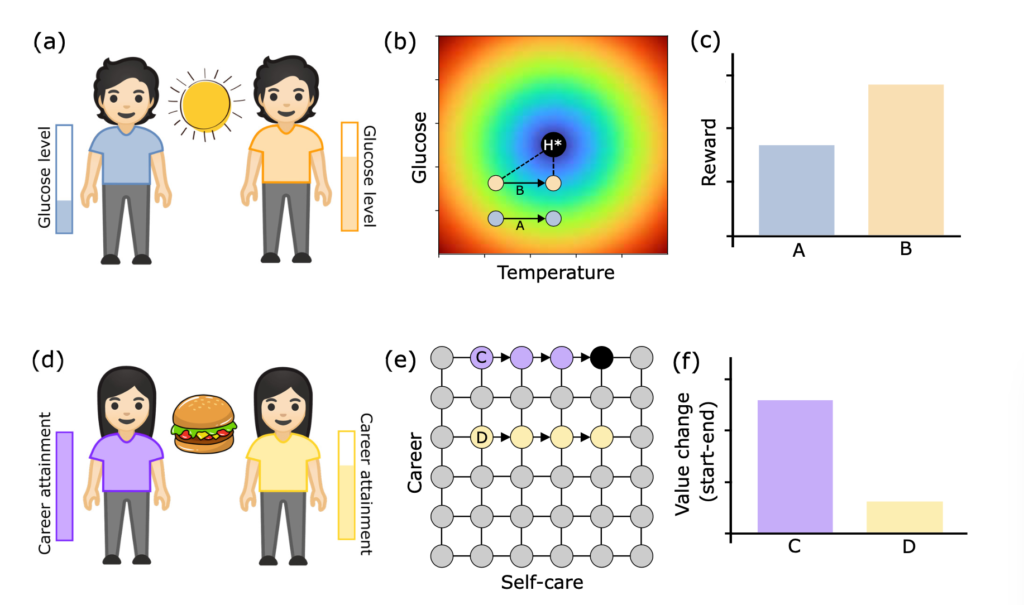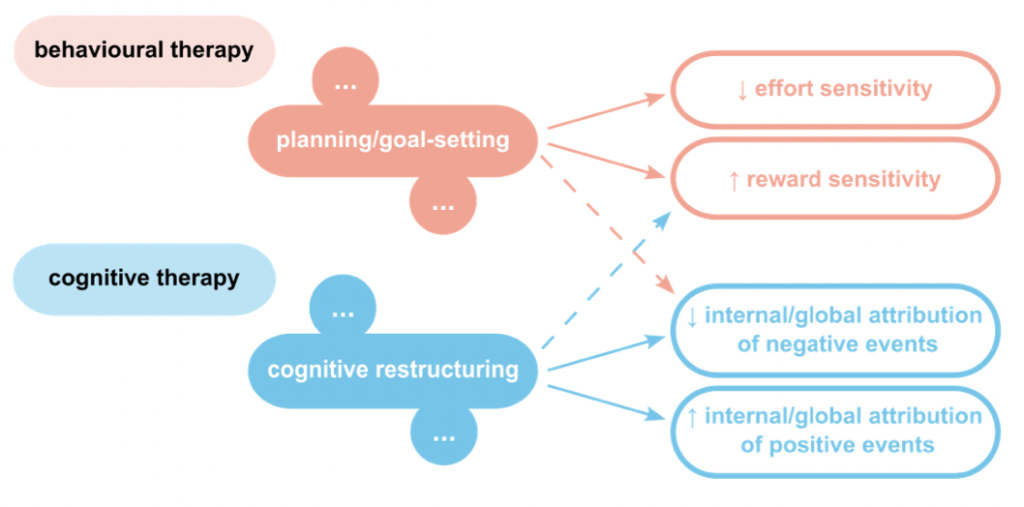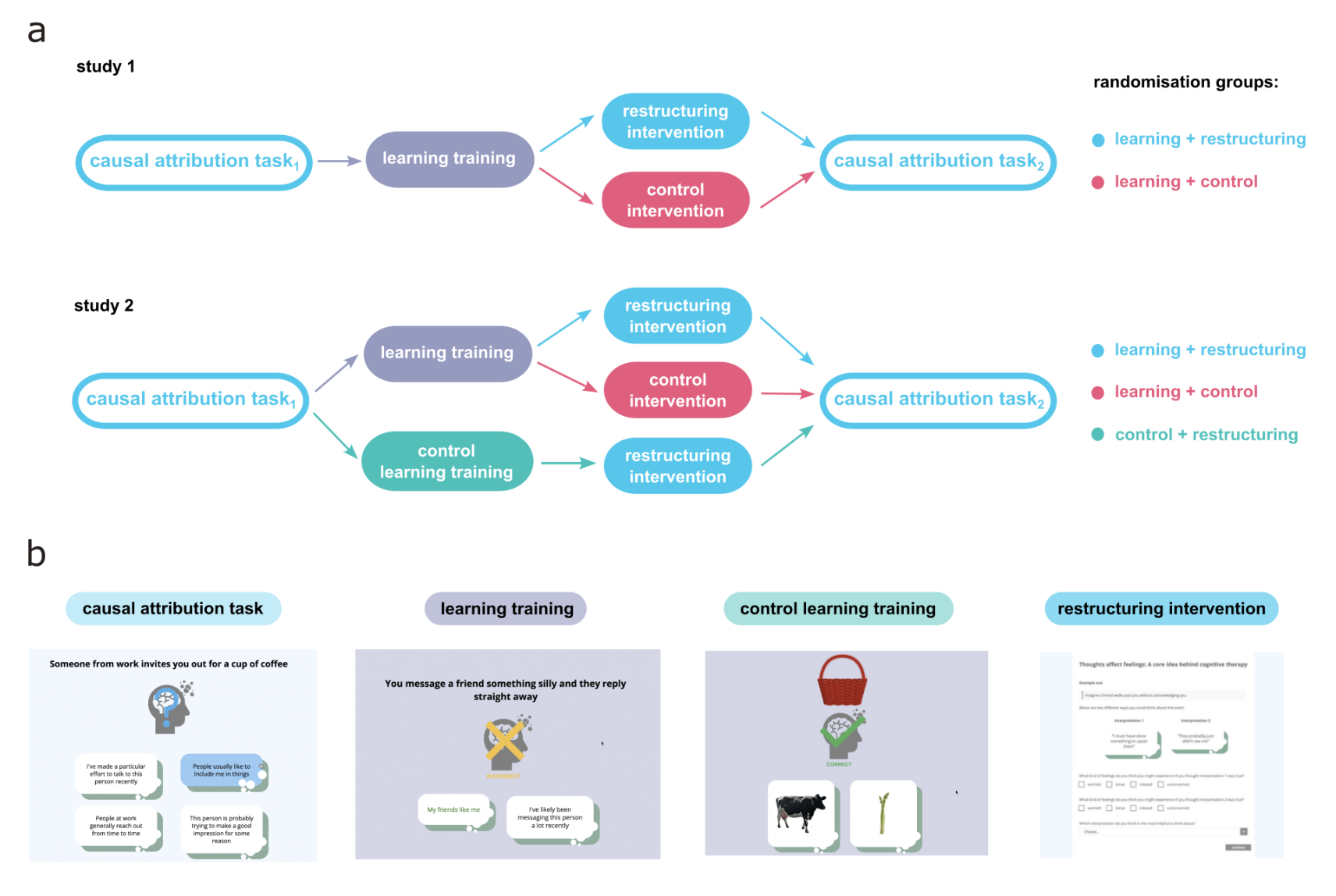The Applied Computational Psychiatry lab focuses on developing computational tools with real potential for clinical applications.
Computational Psychiatry is a multidisciplinary field of research at the intersection of psychiatry, neuroscience, machine learning and statistics. The aim of the field is to harness advances in these fields to advance treatments for mental illnesses. For overviews over computational psychiatry, see Huys et al., 2016 Nature Neuroscience and Huys et al. 2020 Neuropsychopharmacology
We are part of the Divison of Psychiatry and the Max Planck UCL Centre for Computational Psychiatry and Ageing Research in the Institute of Neurology at University College London.
When an organ is unable to meet the demands placed on it, illness can arise. As the main functions of the brain are to compute and learn, an understanding of mental illnesses will benefit from an understanding of the computational and learning functions the brain performs, and how these are affected in states of ill-health.
Latest Publications
The computational structure of consummatory anhedonia. Hall, Anna; Browning, Michael; Huys, Q. J. M. (2024). Trends. Cog. Sci.

Anhedonia is a reduction in enjoyment, motivation or interest. It is common across mental health disorders and a harbinger of poor treatment outcomes. The enjoyment aspect, termed ‘consummatory anhedonia‘, in particular poses fundamental questions about how the brain constructs rewards: What processes determine how intensely a reward is experienced?
Here, we outline limitations of existing computational conceptualisations of consummatory anhedonia. We suggest a richer reinforcement-learning account of consummatory anhedonia with a reconceptualisation of subjective hedonic experience in terms of goal progress.
Different components of cognitive-behavioural therapy affect specific cognitive mechanisms. Norbury, Agnes; Hauser, Tobias; Fleming, Stephen; Dolan, Raymond; Huys, Quentin (2024). Scientific Advances. In Press.

Psychological therapies are among the most effective treatments for common mental health problems. However, we still know relatively little about the mechanisms by which treatments improve symptoms.
Through randomised-controlled experiments (N=807), we examine components of cognitive-behavioural therapy. We find that a goal-setting intervention from behavioral activation therapy reduces effort sensitivity, while a cognitive restructuring intervention from cognitive therapy diminishes attributions of negative events to internal causes. These specific effects highlight a crucial step in understanding therapy mechanisms for future targeted treatments.
Latest Preprints
Exploring the Unexplored: Worry as a Catalyst for Exploratory Behavior in Anxiety and Depression. Kristin Witte and Toby Wise and Quentin J. M. Huys and Eric Schulz (2024). PsyArxiv

In our studies, we investigate the link between anxiety, depression, and exploration behaviour using a multi-armed bandit task that simulates real-world risks. The study consists of two parts: one correlational and the other experimental, involving an intervention to reduce worry. Findings indicate that worry may causally lead to increased exploration, suggesting that anxious and depressive traits, through worrying, can encourage seeking new experiences rather than reducing exploration.
Learning training boosts causal attribution tendencies similarly to brief cognitive restructuring, depending on individual differences in learning rate. Norbury, Agnes; Hauser, Tobias; Dolan, Raymond; Huys, Quentin J. M. (2024). PsyArXiv, 2024.

A core part of cognitive therapy for low mood is learning to identify and challenge negative beliefs. However, it is currently unclear whether improved ability to recognise such beliefs is a mechanism of symptom change during treatment.
Here, we investigated the effects of both a learning task and a brief cognitive restructuring intervention on a task-based measure of causal attribution tendencies. We found that both learning training and the restructuring intervention decreased tendencies to make unhelpful attributions and increased tendencies to make self-enhancing attributions.